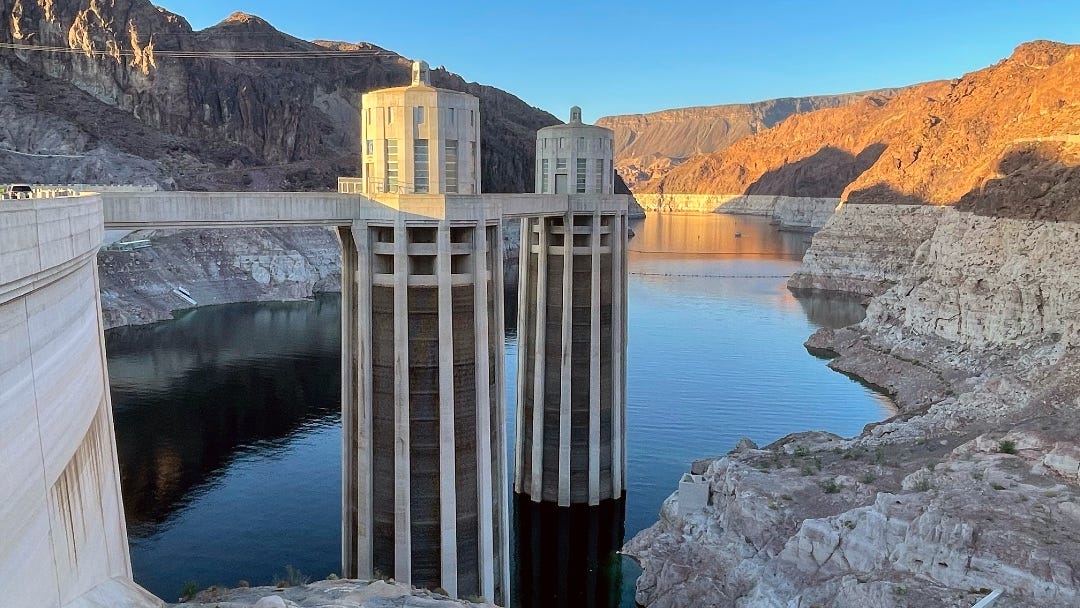
Yesterday, a new national heat record was set in Norway, coinciding with my arrival in Oslo, the country's capital. For the first time in recorded history, temperatures soared above 30 degrees Celsius in September, reaching a staggering 30.6 degrees. I vividly recall the struggle of hauling heavy luggage up three flights of stairs, followed by the refreshing relief of a cool shower once the ordeal was over.
Norway's neighbor, Sweden, also experienced an unprecedented heatwave, with temperatures climbing to 31.1 degrees Celsius, marking its own record for September.
Until about five years ago, my work revolved around climate change issues, based on solid scientific insights rather than personal narratives. Since then, my perspective has changed since I witnessed firsthand the effects of climate change I had warned about for years.
I walked through extreme heatwaves and the choking smoke of forest fires in Spain.
In Ottawa, Canada, I experienced the iconic Rideau Canal skating rink—the largest in the world—fail to freeze for the first time in history.
I lived in Canada as forest fires grew so large they shattered all previous records, coloring the skyline of New York in an orange haze. These wildfires kept smoldering underground in snowless winter areas for the first time, so they reemerged earlier than ever, defying the seasonal norms.
I traveled along the Colorado River and witnessed the struggle to provide enough water for the thirsty American West.
I observed changes in the dunes of my beloved Dutch island, where migratory birds now choose to stay through the winter, no longer needing to migrate due to milder temperatures.
I witnessed unusual droughts in the Netherlands, a country renowned for its water management, now training flood prevention experts in drought management.
And then, on the day I moved to Oslo, Norway, that country broke another record.
The extreme weather events we witness are not isolated incidents but examples of an alarming global trend.
According to the Copernicus Climate Change Service, the summer of 2024 has set new temperature benchmarks globally. Average temperatures for June to August reached 0.69 degrees Celsius above the 1991-2020 average, surpassing the previous record set in 2023.
August 2024 tied with August 2023 as the warmest on record globally, with an average surface air temperature of 16.82 degrees Celsius, 1.51 degrees above pre-industrial levels. This summer marked the 13th month in a 14-month period where global average temperatures exceeded 1.5 degrees above pre-industrial levels.
When we talk about climate change, there are just a few numbers you need to know. The 1.5-degree level is one of them. Those 13 months may not count as having structurally breached the limit set in the Paris Agreement, but even temporarily crossing this level of warming is a stark reminder of the urgency of the climate crisis.
The consequences of these rising temperatures are severe and diverse. The summer of 2024 has brought record-breaking heat and intensified droughts and wildfires across the continent. Areas in southern and eastern Europe faced severe drought conditions, while northern regions experienced heavy precipitation, leading to flooding.
I will soon send first impressions and updates from Oslo, but I needed to share this climate change information first (spoiler: this city is beautiful, and—don't shoot the messenger—so is the weather once your luggage is upstairs and you manage to forget about the ugly phenomenon of climate change briefly).
Have you also personally experienced climate change after years of only reading about it?
Did you know that clicking on the ❤️ at the bottom or the top of this post will help others discover my publication? You can also share it with others. The best way to support my work and not miss anything is by subscribing to this newsletter.
There is often something extra to enjoy on Patreon:
Or perhaps you liked the article and want to support my writing by buying me a coffee?
I always love to read subscribers’ comments:
The Erosion of Trust in Democracy
Winston Churchill famously quipped that "democracy is the worst form of government—except for all those other forms that have been tried." His remark captures a paradigm of modern Western politics: We have an imperfect system of governance, and it is, therefore, natural that some voters are drawn to a call for other forms of government.
Notes:
https://climate.copernicus.eu/copernicus-summer-2024-hottest-record-globally-and-europe
https://yaleclimateconnections.org
https://climate.copernicus.eu/surface-air-temperature-august-2024








We have experienced very hot 🥵 weather here in the SE USA but not nearly as severe as others in our group here. It is often too humid and hot to work outdoors and power bills reflect the high usage of air conditioning , very little of it the green energy we are striving for yet. You say you have moved to Oslo? Is that a semipermanent assignment for this time of year? Will you not be returning to Ottawa? Do not intend to be intrusive. Just enjoy placing you wherever you might be in this world as home when not on your lovely island in the Netherlands. Believe you spoke of less travel to conserve “flight energy.” Very compassionate of you and selfless with so many still filling the air spaces with private jets guzzling fuel. Zoom seems to be a much more practical solution when possible for business. So sorry you are away from your morning swim routine. Sounded so very lovely. Enjoy the city when you can and do send stories and photos! 🕊️
I hear you-and really appreciate your stamina in continuing to stand up for our planet.
This is the first year in three that we had a real monsoon season in Northern New Mexico. The Rio Grande River was in danger of drying out in Albuquerque in 2023…that was unimaginable in 1992…
When I lived in Bangaluru in 2021, we ran out of water in our complexes in many areas of the city. Farmers had to buy water for crops, while other areas were deluged and crops washed away.
When I first lived in NYC in the mid 90s, the wind off the East River made it jacket weather by mid of September or latest early October; when I left in 2015, it might not be winter cold at all before Thanksgiving. And now it rains at the Christmas markets, rather than snowing.
Yeah, like you I have lived all over, and everywhere weather has changed very noticeably. And it is so frustrating to live in a country where special interests have lied and manipulated shamelessly to convince people what they experience every day isn’t climate change, isn’t manmade or fossil fuel related, and isn’t something they can impact…